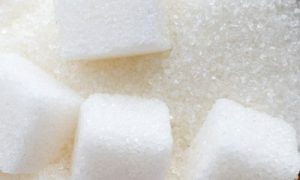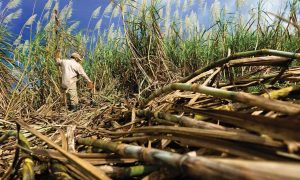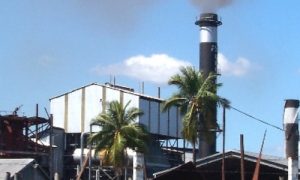Zimbabwe: Sugarcane growers get bigger share of revenue

Sugarcane farmers in Zimbabwe’s Lowveld have successfully increased their revenue share from 77% to 80.5% following negotiations with Tongaat Hulett over the Division of Proceeds (DoP) for raw sugar. Despite this progress, farmers are advocating for a further increase to 85% to better cover production costs. The sugar industry, a major employer in Zimbabwe, faces ongoing challenges and calls for reform to ensure fair profit distribution and break Tongaat’s monopoly.
The share of revenue for sugarcane farmers in the Lowveld has been increased from 77 percent to 80,5 percent following a review to resolve a prolonged dispute with Tongaat Huletts over the sharing of raw sugar proceeds.
Sugarcane farmers in the Lowveld and Tongaat, which operates Triangle Limited and Hippo Valley milling plants, have been at odds over revenue sharing, known as the Division of Proceeds (DoP). DoP is a system for dividing the revenue from raw sugar between millers and farmers.
Farmers argued that the 77 percent share of revenue they were receiving was insufficient given the high costs of sugarcane production. They demanded an increase to 85 percent. “The interim DoP is now at 80,5 percent for farmers and 19,5 percent for the millers.
“However, we hope for another review as farmers have been advocating for an increase to 85 percent,” said an official in the Ministry of Industry and Commerce.
“It may be necessary to consult an expert to examine this issue further. Although the farmersʼ share of revenue has increased to 80,5 percent, it remains unsustainable due to the high costs of sugarcane production.”
Repeated attempts to reach Tongaat spokesperson Dr Dahlia Garwe for comment were unsuccessful. However, in a previous statement, Dr Garwe confirmed that the DoP was currently under review.
“The matter (is) still under consideration by the consultant and the Ministry of Industry and Commerce . . . we will wait for the o icial position before we can comment,” she said.
A farmer organisation leader told The Herald Finance and Business in an interview that the increase of revenue share from 77 percent to 80,5 percent was a significant step forward, but a long way to go to achieve a “truly fair distribution of profits.
“After years of fighting for a fairer deal, we are finally seeing some progress,” he said. “This is a positive development, but we must remain vigilant and continue to advocate for further reforms in the sugar industry.
“Our goal is to ensure that sugarcane farmers receive a fair share of the profits from their hard work.”
The sugar industry is one of Zimbabweʼs largest formal employers, with a workforce of between 25 000 and 27 000, primarily located in the countryʼs Lowveld.
Before the land reform programme began in the early 2000s, Tongaat owned 75 percent of all sugarcane land.
Land ownership changes significantly impacted the industry, with Tongaatʼs plantations decreasing to 56 percent of the previous land holding, with out-growers controlling the remaining 44 percent.
The farmers have been demanding significant reforms in the sugar industry to break the monopoly of Tongaat and adoption of a revised DoP ratio that governs revenue sharing between growers and millers.
Increasingly frustrated by the perceived inaction to address the situation on this long-standing issue, farmer organisations have been pushing reforms, including amendments to the Sugar Production Control Act, to ensure the viability of growers and protect them from monopolistic practices by Tongaat Hulett.
Farmer organisations have since petitioned Parliament to amend the Sugar Production Control Act, arguing that it is outdated and no longer reflects the industryʼs post-land reform landscape.
In the petition, signed by eight associations representing local Lowveld farmers, sugarcane growers sought reforms across the entire value chain, to transition from Tongaatʼs monopoly to a system that accounts for the increased participation of local farmers resulting from land reform.
The farmers unanimously agreed that the 1964 Sugar Production Control Act was outdated and lacked provisions for establishing and incorporating the Zimbabwe Sugar Association, its membership and composition, the powers of the ZSA Council, and sugar industry agreements. Farmers advocated for aligning the Act with the current realities of the Zimbabwean sugar industry through necessary amendments.
According to the petition, only three of eight associations are represented on the Zimbabwe Sugar Association (ZSA) and Zimbabwe Sugar Sales (ZSS) boards, and even then, without executive powers.
Sugarcane farmers recommended amending the Act to mandate farmer representation on the boards and government appointment of ZSA and ZSS board directors.
Zimbabwe exports sugar to several countries within the SADC and COMESA blocs, as well as North America.
Source: https://www.herald.co.zw/sugarcane-growers-get-bigger-share-of-revenue-2/

















